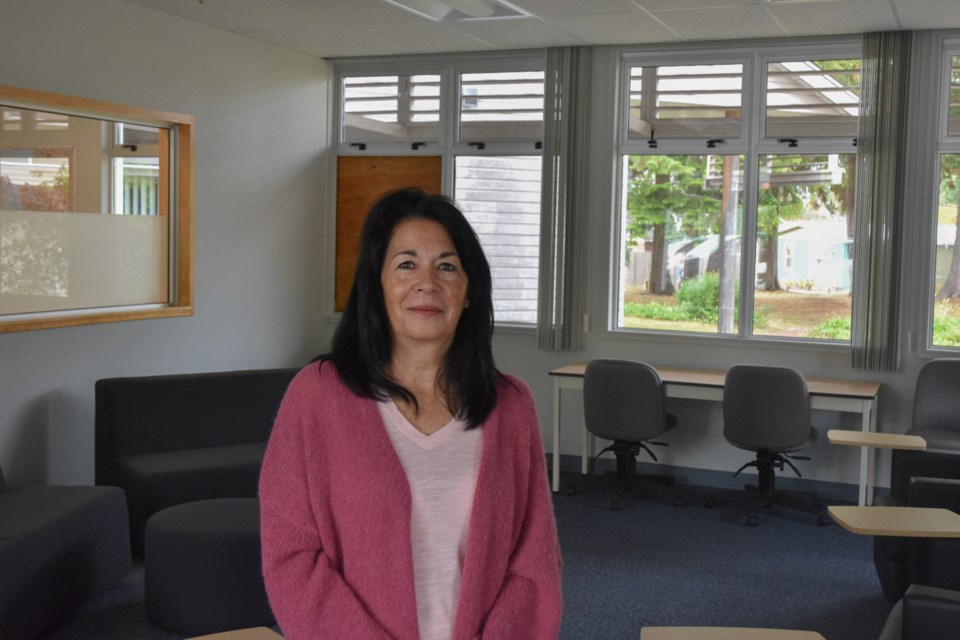shíshálh Nation and Capilano University have partnered to offer an Indigenous arts mastery program.
The two-year The new Carving Shed: Supporting Indigenous Arts Mastery (SIAM) program is being offered at Capilano University’s kálax-ay campus on the Sunshine Coast, and will include courses on wood carving, jewellery carving and plant medicine.
The course aims to use culturally safe, decolonized practices in what is the first Indigenous-led teaching and learning centre of this kind in the Pacific Northwest.
Jessica Silvey, Indigenous faculty advisor at the Capilano University kálax-ay campus, said this program has been a dream of hers for years.
“We're just so happy about that. To be able to offer our students culture in a way that hasn't been taught in our community a long time traditionally.”
Silvey explained that many of the skills taught in this program used to be taught and passed down by family members.
“If you wanted to become a carver, you would go and sit and watch an Elder, a carver whether it be an Elder of yours or a family friend or your uncle or your grandfather, you would sit with them and learn that way before you're actually able to begin the carving process,” said Silvey. “And we don't have that anymore.”
Silvey explained that the program's lead carver is Heiltsuk artist, Dean Hunt.
“He's an amazing carver and artist. He has his own studio in his home here in ts'ukw'um just in Davis Bay,” she said. “I can't say enough good things about him and how proud we are to have him want to be involved in our project.”
The program will accommodate 10 Indigenous students per course each year, with priority given to students from the shíshálh Nation.
“It’s important for [students] to have some one-on-one and to be in a group with your peers and people that you've grown up with your own community members,” said Silvey.
Wood carving courses will be offered in the fall semester, while jewellery carving will be taught during the spring semester.
Silvey will be leading the medicine program, which starts in October. She said a dream of hers is to have a medicine garden out front of the campus that her students can use.
“We'll also be going off into the field and into the woods and along beaches, marshes and making medicines and teas and natural dyes from medicine plants in the traditional food plants,” she said.
While the Nation and Capilano University plan to create a standalone carving shed in the future, the first two years of the program are a pilot phase, during which the Carving Shed: SIAM program will take place in what was once the Learning Commons room at kálax-ay campus.
In the media release, lhe hiwus yalxwemult (Chief Lenora Joe) said, “We, as Chief and Council, are delighted to know that our shíshálh community members will have the opportunity to develop and express their artistic and cultural abilities in their own community. We look forward to seeing their development and emergence as young artists and to building an even stronger relationship with the kálax-ay campus.”
Silvey said the program is being initially funded by SIAM for the first two years, with a possibility for longer term funding.
“If not, then we will find funding elsewhere to keep it going because it's not something that's going to just end in two years,” said Silvey. “It's something that Capilano University and shíshálh Nation have committed to long term.”
The media release from Capilano University said the program is made possible through funding from a Native Creative Development program grant from s’gʷ gʷiɁ altxʷ House of Welcome Cultural Arts Center in Washington State.
Jordan Copp is the Coast Reporter’s civic and Indigenous affairs reporter. This reporting beat is made possible by the Local Journalism Initiative.

.png;w=120;h=80;mode=crop)

